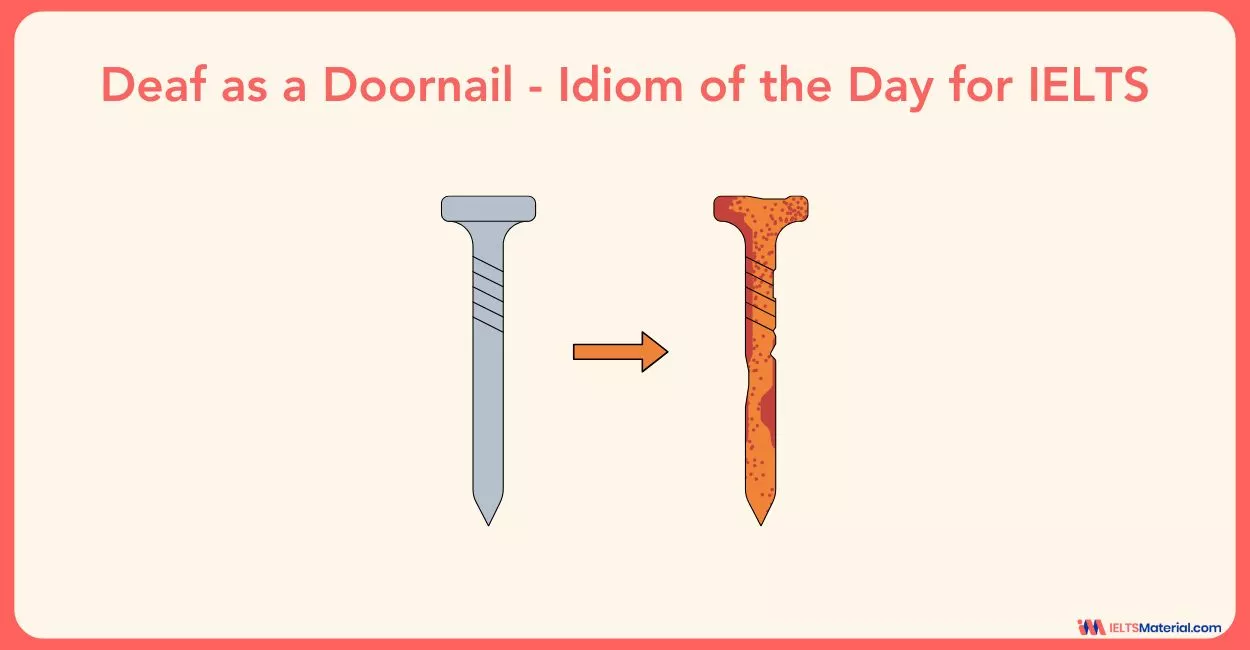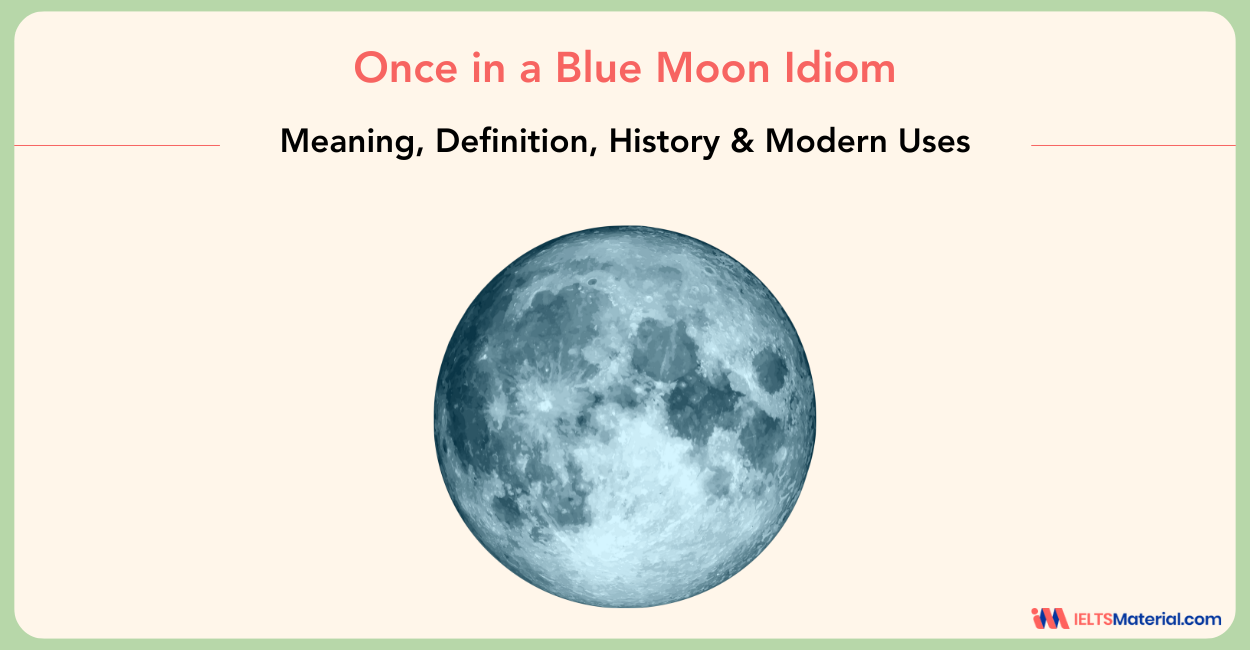On a Knife Edge – Idiom of the Day for IELTS Speaking
Learn how to use “On a Knife Edge” in IELTS Speaking to describe risky or tense situations. Get example sentences, cue card samples, and vocabulary practice. Use idioms naturally and boost your Lexical Resource score with this helpful idiom guide.
Table of Contents

Limited-Time Offer : Access a FREE 10-Day IELTS Study Plan!
To impress the examiner in the IELTS Speaking test, it’s not just about how fluent you are, it’s also about showcasing a strong command of natural and varied vocabulary. Idioms, when used appropriately, can help boost your Lexical Resource score. One such idiom that effectively expresses stress, uncertainty, or risk is “On a Knife Edge.”
What Does “On a Knife Edge” Mean?
Definition:
In a very difficult situation and there are worries about the future.
This idiom is often used when someone is dealing with extreme pressure, danger, or instability, whether financially, emotionally, or situationally. It conveys the idea of being on the brink of disaster or success, just like balancing on the sharp edge of a knife.
Origin and Background of the Idiom "On a Knife Edge"
The idiom originates from the imagery of standing or balancing on the sharp edge of a knife, which is both dangerous and unstable. It's been widely used in British and American English to describe high-stakes or uncertain moments, particularly in politics, sports, finance, and daily life.
In the IELTS Speaking, this idiom can be used effectively when discussing stressful decisions, life events, or high-risk actions.
Examples of “On a Knife Edge” in Sentences
To use idioms naturally in IELTS Speaking, context is key. Here are some common examples of “on a knife edge” in daily and exam-related situations:
- “I’ve put myself on a knife edge when I forgot the calculator in the business management qualification test, which involved a lot of calculations.”
- “These underprivileged families have to live on a knife edge because their houses are demolished by the storm.”
- “At that time, she stood on a knife edge when the bank declared her that her own company was bankrupt.”
Grab the newly launched Vocabulary for IELTS (Essential words for popular topics in IELTS) to level up your preparation.
When to Use “On a Knife Edge” in IELTS Speaking
Use this idiom when you're discussing:
- Dangerous or risky situations
- Financial problems
- Emotional or mental stress
- Major decisions or uncertain outcomes
IELTS Speaking Part 1
Q: Do you enjoy taking risks?
A: “Not really. I’ve been on a knife edge before, and I’d rather avoid that kind of stress.”
IELTS Speaking Part 2
Cue Card: Describe a time you were in a risky or dangerous situation.
A: “Last year, I was traveling abroad, and I lost my phone and wallet in a foreign country. I didn’t know anyone there, had no money, and couldn’t contact my family. I was really on a knife edge, trying to figure out how to get help. Fortunately, a kind local assisted me, and I managed to contact the embassy.”
IELTS Speaking Part 3
Q: Do you think people take more risks today than in the past?
A: “Yes, especially financially. Many young people invest in cryptocurrencies or start businesses without a backup plan, often putting themselves on a knife edge.”
Using idioms like this adds depth and variety to your responses, which helps boost your IELTS Band Score.
Want to master more high-band IELTS vocabulary for the IELTS exam? Book a Free Demo Class today.
Related Idioms and Phrases
| Idiom / Phrase | Meaning | Example |
|---|---|---|
| Walking a tightrope | Being in a risky or delicate situation | “She’s walking a tightrope by juggling two full-time jobs.” |
| In hot water | In trouble or difficulty | “He found himself in hot water after missing the deadline.” |
| A double-edged sword | A situation with both positive and negative effects | “Fame can be a double-edged sword.” |
| Playing with fire | Taking a dangerous or reckless risk | “He’s playing with fire by ignoring health warnings.” |
Exercises to Test Your Knowledge on "On a Knife Edge"
Exercise 1: Fill in the Blank
The sentence given below contains an idiom. From the given alternatives, choose the one that best expresses the meaning of this idiom.
Question: “When Ben sold his house for his investment, he obviously put himself on a knife edge.”
A. He needed a knife.
B. He wanted to go somewhere.
C. He was satisfied with his decision.
D. He put himself at risk.
Correct Answer: D. He put himself at risk. (The idiom “on a knife edge” refers to being in a risky, uncertain, or dangerous situation.)
Exercise 2: IELTS Speaking Part 2 – Sample Answer Using “On a Knife Edge”
Cue Card:
Describe a time when you were in a dangerous situation.
You should say:
- When did it happen?
- What did you do during this time?
- How did you escape from the situation?
- And did you learn any lesson from this?
Sample Answer:
About a year ago, I experienced a truly frightening moment when I was driving through the mountains late at night. It was raining heavily, and I took a wrong turn onto a narrow, slippery road with no lights or guardrails. My car started skidding, and for a few minutes, I was really on a knife edge, not knowing whether I’d make it out safely.
During that time, I stayed as calm as possible, slowed the car down, and tried to find a safe spot to stop. Eventually, I managed to reverse slowly back to the main road with the help of GPS and a roadside reflector.
Looking back, I realised how important it is to check your route and never drive in poor weather conditions in unfamiliar areas. The experience taught me the value of preparation and staying composed under pressure.
Overall, the idiom “on a knife edge” is extremely useful for IELTS candidates when describing stressful or risky experiences. Mastering idioms like this will help you speak with more fluency and confidence and ultimately, help raise your IELTS Speaking band score.
If you're aiming for top scores, follow the IELTS Exam Preparation Tips for Band Score of 8+ to further enhance your vocabulary and overall test performance.
Also Check:
Explore IELTS Resources

Start Preparing for IELTS: Get Your 10-Day Study Plan Today!
Recent Articles

Kasturika Samanta

Prity Mallick

Nehasri Ravishenbagam





Post your Comments